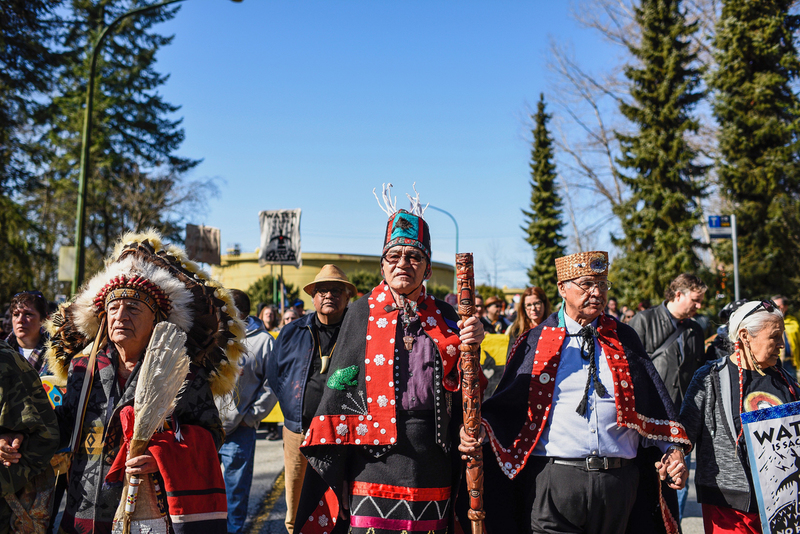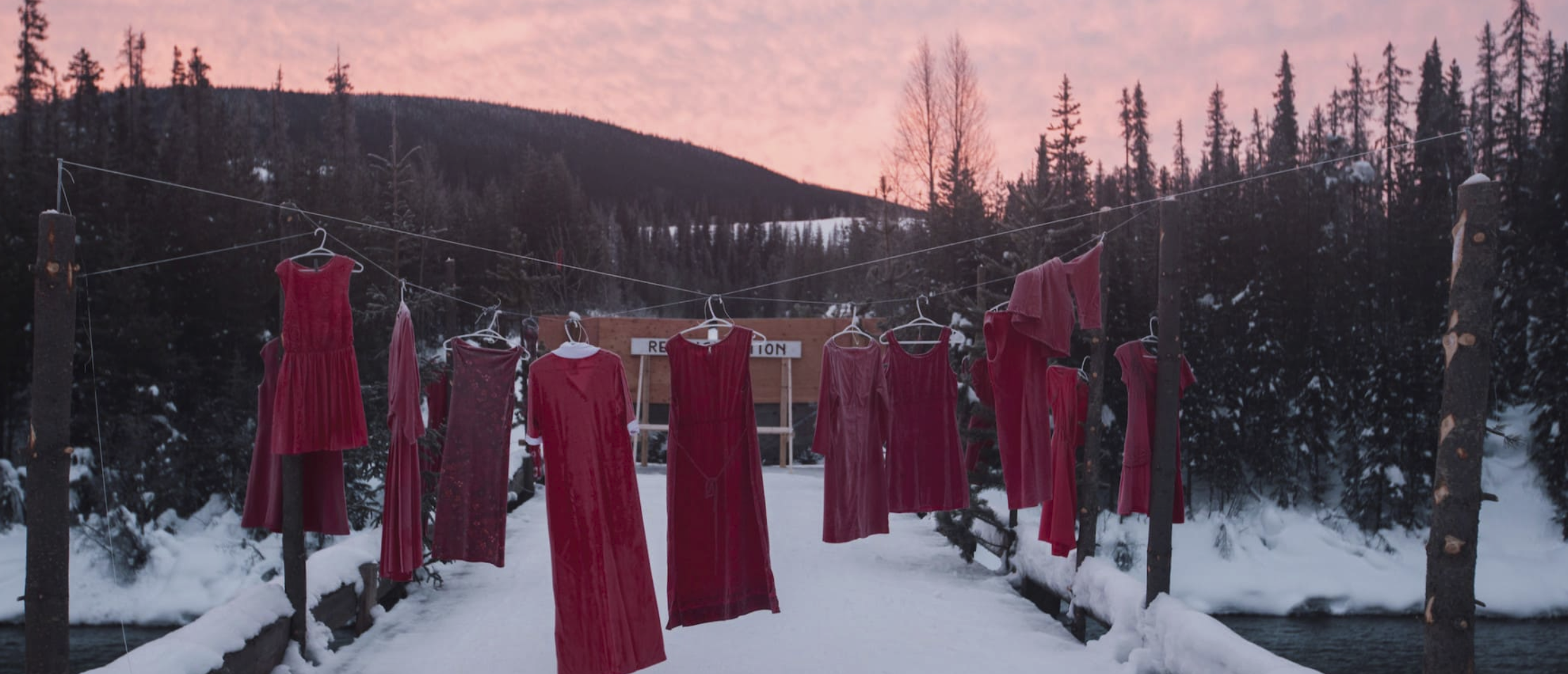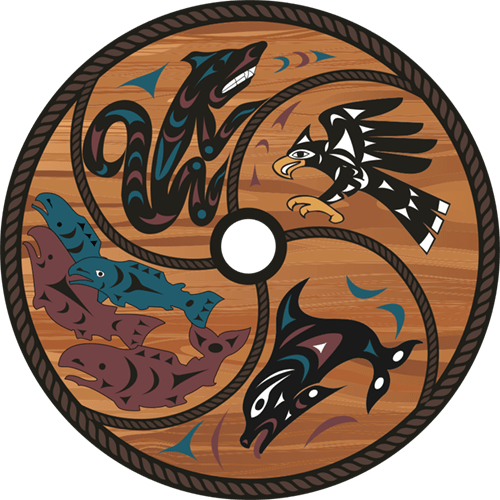The WLC stands with Wet’suwet’en Hereditary Chiefs, calls on Feds, Province to uphold UNDRIP, come to a peaceful resolution.
February 18th, 2020 – The WLC–representing the Tsartlip, Tsawout and Tseycum First Nations–sent an open letter to Prime Minister Justin Trudeau and Premier John Horgan urging them to make good on their commitments to reconciliation and UNDRIP.
As the land defenders and their allies grow in fierce opposition to the $6 billion dollar, 670-kilometer fracked gas pipeline through Wet’suwet’en jurisdiction, the WLC calls for a peaceful resolution to an increasingly volatile situation.
The W̱SÁNEĆ Leadership Council (WLC) stands with the Wet’suwet’en and is calling on Federal and Provincial bodies to honour the Delgamuukw and Tsilhqot’in Supreme Court decisions on Aboriginal Title and meet with the Wet’suwet’en Hereditary Chiefs.
While the WLC acknowledges that the federal and provincial governments have met with Wet’suwet’en Indian Act Chiefs and Councils, the hereditary chiefs have not been properly consulted and have not provided their free, prior and informed consent for the construction of the pipeline through their territory..
Canada’s highest court has confirmed the validity of Indigenous Law; that Wet’suwet’en hereditary chiefs–not Chiefs and Councils–have jurisdiction over their land.
In spite of repeated commitments to reconciliation, the federal and provincial governments have issued permits approving the project and have obtained an injunction from the courts authorizing the RCMP to forcibly remove matriarchs, media, and Indigenous youth who oppose the pipeline expansion.
(Hereditary chiefs of Wet’suwet’en Nation in northern B.C. Photo: Kathleen Martens/APTN)
By supporting Coastal Gaslink / TransCanada over their commitments to reconciliation, Indigenous laws, and the United Nations Declaration on the rights of Indigenous People, Canada’s colonial government is prioritizing corporate interests over the environment, Indigenous Law, and basic human rights.
By facilitating the construction of a pipeline that will carry fracked Liquid Natural Gas through Wet’suwet’en territory, the colonial government is directly impeding Indigenous rights to hunt, fish, trap, and look after the natural environment throughout their territory. In addition, this pipeline project poses serious negative risks to the health and well-being of Wet’suwet’en people and the land they are under sacred obligation to protect. There is substantial evidence that shows a correlation between fracking projects and environmental destruction. Fracking can cause pollution in aquifers and groundwater, which can increase the risk of Leukemia, heart disease, chronic lung problems, and other major health issues.
In addition to the irreparable damage to the environment, there are direct ties between resource extraction work camps and the epidemic of missing and murdered Indigenous women across the province. A final report released from the National Inquiry Committee in June found “work camps, or ‘man camps,’ associated with the resource extraction industry are implicated in higher rates of violence against Indigenous women at the camps and in the neighbouring communities.”
Work camps for large resource projects like the Coastal GasLink pipeline bring an influx of transient workers. The final report for the National Inquiry into Missing and Murdered Indigenous Women described the connection between transient workers and higher rates of sexual harassment and assault, women entering the sex trade and sexually transmitted diseases. More than 1,700 Indigenous women and girls have gone missing in Canada, according to the national inquiry. Photo: Amber Bracken / The Narwhal
In a letter sent Thursday, February 18th 2020, the WLC said:
“Much like the Wet’suwet’en, W̱SÁNEĆ people must fulfill the sacred obligations given to us by XÁ,EL,S (Creator). Our lands were taken from us, our traditional practices were criminalized, we were removed as care-takers of the land, and it became increasingly difficult for us to honour our sacred obligations. The Wet’suwet’en struggle is the struggle of W̱SÁNEĆ people and all Indigenous peoples across Canada.
As a result, the W̱SÁNEĆ Leadership Council calls on the provincial and federal government to respect Wet’suwet’en jurisdiction, uphold the commitments made to reconciliation and UNDRIP, implement the Delgamuukw and Tsilhqot’in Supreme Court decisions on Aboriginal Title and meet with Wet’suwet’en hereditary chiefs to find a peaceful resolution.”
RECENT POSTS
How are we doing?
“Much like the Wet’suwet’en, W̱SÁNEĆ people must fulfill the sacred obligations given to us by XÁ,EL,S (Creator). Our lands were taken from us, our traditional practices were criminalized, we were removed as care-takers of the land, and it became increasingly difficult for us to honour our sacred obligations. The Wet’suwet’en struggle is the struggle of W̱SÁNEĆ people and all Indigenous peoples across Canada.
As a result, the W̱SÁNEĆ Leadership Council calls on the provincial and federal government to respect Wet’suwet’en jurisdiction, uphold the commitments made to reconciliation and UNDRIP, implement the Delgamuukw and Tsilhqot’in Supreme Court decisions on Aboriginal Title and meet with Wet’suwet’en hereditary chiefs to find a peaceful resolution.”








